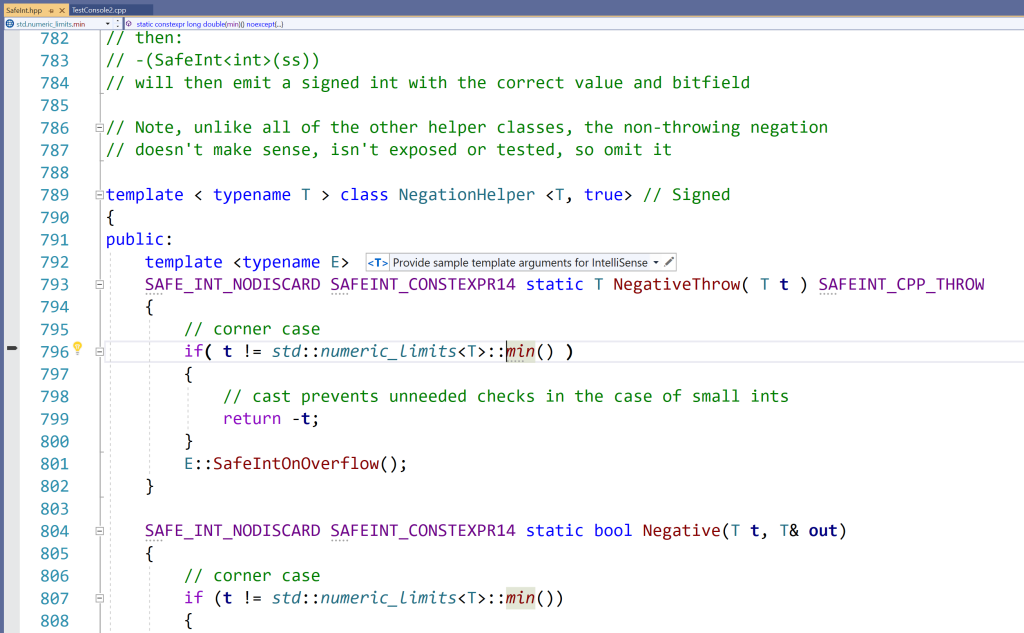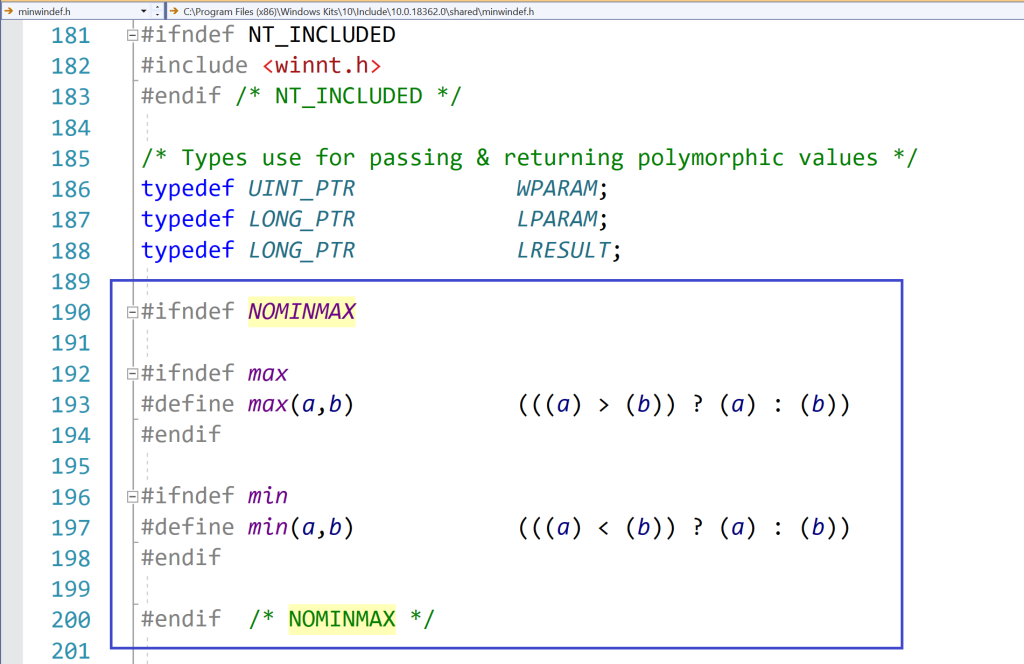Let’s discuss a cool open-source C++ library that helps you write nice and clear C++ code, but with safety checks *automatically* added under the hood.
In previous blog posts I discussed the problem of integer overflow and some subtle bugs that can be caused by that (we saw both the signed and the unsigned integer cases).
Now, consider the apparently innocent simple C++ code that sums the integer values stored in a vector:
// Sum the 16-bit signed integers stored in the values vector
int16_t Sum(const std::vector<int16_t>& values)
{
int16_t sum = 0;
for (auto num : values)
{
sum += num;
}
return sum;
}
As we saw, that code is subject to bogus integer overflow, and may return a negative number even if all positive integer numbers are added together!
To prevent that kind of bugs, we added a safety check before doing the cumulative sum, throwing an exception in case an integer overflow was detected. Better throwing an exception than returning a bogus result!
The checking code was:
//
// Check for integer overflow *before* doing the sum
//
if (num > 0 && sum > std::numeric_limits<int16_t>::max() - num)
{
throw std::overflow_error("Overflow in Sum function when adding a positive number.");
}
else if (num < 0 && sum < std::numeric_limits<int16_t>::min() - num)
{
throw std::overflow_error("Overflow in Sum function when adding a negative number.");
}
// The sum is safe
sum += num;
Of course, writing this kind of complicated check code each time there is a sum operation that could potentially overflow would be excruciatingly cumbersome, and bug prone!
It would be certainly better to write a function that performs this kind of checks, and invoke it before adding two integers. That would be certainly a huge step forward versus repeating the above code each time two integers are added.
But, in C++ we can do even better than that!
In fact, C++ offers the ability to overload operators, such as + and +=. So, we could write a kind of SafeInt class, that wraps a “raw” built-in integer type in safe boundaries, and that overloads various operators like +,+=, and so on, and transparently and automatically checks that the operations are safe, and throws an exception in case of integer overflow, instead of returning a bogus result.
This class could be actually a class template, like a SafeInt<T>, where T could be an integer type, like int, int16_t, uint16_t, and so on.
That is a great idea! But developing that code from scratch would certainly require lots of time and energy, and especially we would spend a lot of time debugging and refining it, considering various corner cases and paying attention to the various overflow conditions, and so on.
Fortunately, you don’t have to do all that work! In fact, there is an open source library that does exactly that! This library is called SafeInt. It was initially created in Microsoft Office in 2003, and is now available as open source on GitHub.
To use the SafeInt C++ library in your code, you just have to #include the SafeInt.hpp header file. Basically, the SafeInt class template behaves like a drop-in replacement for built-in integer types; it does however do all the proper integer overflow checks behind the hood of its overloaded operators.
So, considering our previous Sum function, we can make it safe simply replacing the “raw” int16_t type that holds the sum with a SafeInt<int16_t>:
#include "SafeInt.hpp" // The SafeInt C++ library
// Sum the 16-bit integers stored in the values vector
int16_t Sum(const std::vector<int16_t>& values)
{
// Use SafeInt to check against integer overflow
SafeInt<int16_t> sum; // = 0; <-- automatically init to 0
for (auto num : values)
{
sum += num; // <-- *automatically* checked against integer overflow!!
}
return sum;
}
Note how the code is basically the same clear and simple code we initially wrote! But, this time, the cumulative sum operation “sum += num” is automatically checked against integer overflow by the SafeInt’s implementation of the overloaded operator +=. The great thing is that all the checks are done automatically and under the hood by the SafeInt’s overloaded operators! You don’t have to spend time and energy writing potential bug-prone check code. It’s all done automatically and transparently. And the code looks very clear and simple, without additional “pollution” of if-else checks and throwing exceptions. This kind of (necessary) complexity is well embedded and hidden under the SafeInt’s implementation.
SafeInt by default signals errors, like integer overflow, throwing an exception of type SafeIntException, with the m_code data member set to a SafeIntError enum value that indicates the reason for the exception, like SafeIntArithmeticOverflow in case of integer overflow. The following code shows how you can capture the exception thrown by SafeInt in the above Sum function:
std::vector<int16_t> v{ 10, 1000, 2000, 0, 32000 };
try
{
cout << Sum(v) << '\n';
}
catch (const SafeIntException& ex)
{
if (ex.m_code == SafeIntArithmeticOverflow)
{
cout << "SafeInt integer overflow exception correctly caught!\n";
}
}
Note that also other kinds of errors are checked by SafeInt, like attempts to divide by zero.
Moreover, the default SafeInt exception handler can be customized, for example to throw another exception class, like std::runtime_error, or a custom exception, instead of the default SafeIntException.
So, thanks to SafeInt it’s really easy to protect your C++ code against integer overflow (and divisions by zero) and associated subtle bugs! Just replace “raw” built-in integer types with the corresponding SafeInt<T> wrapper, and you are good to go! The code will still look nice and simple, but safety checks will happen automatically under the hood. Thank you very much SafeInt and C++ operator overloading!


